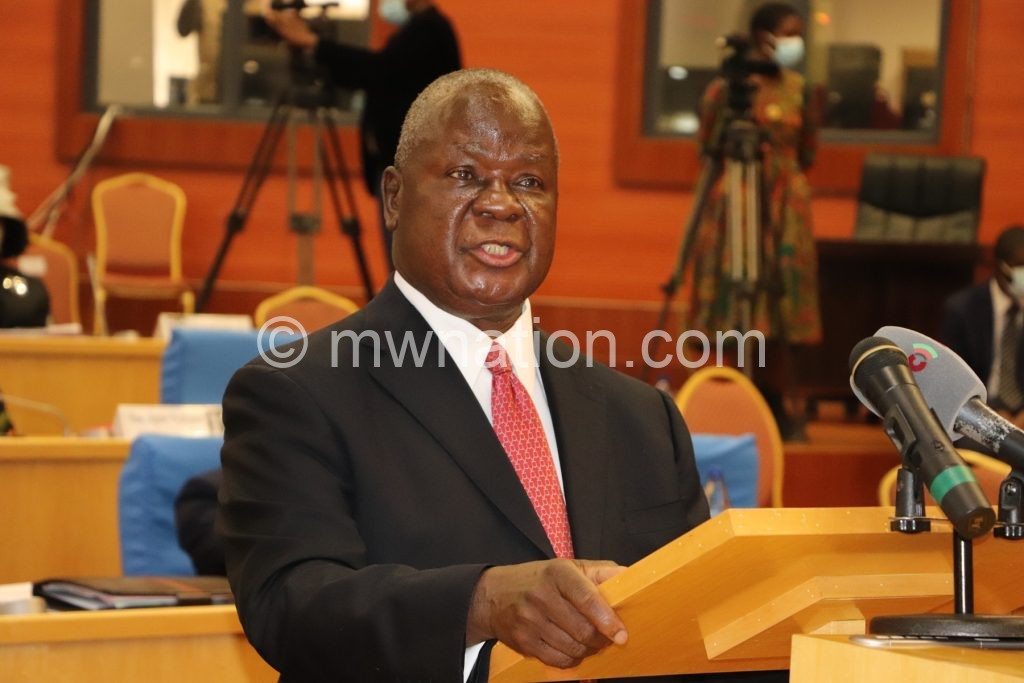Businesses say can’t breathe
Private sector companies have cried foul over government’s delays to pay them tax refunds which have now risen to K12 billion, saying the delays are choking their operations which are crucial to economic development.
Putting up the private sector case during a Public Private Dialogue (PPD) Forum in Mzuzu on Saturday, Nico Holdings plc managing director Vizenge Kumwenda observed that the tax refunds have grown from K10 billion in November 2020 to K12 billion.

He said: “There is still a lot more unsatisfied expectation from the private sector. For example, there is an issue of arrears that the government owes the private sector.
“This is the matter that has been going on for a long time and the private sector is really appealing to the government to look into that with speed.
“There are arrears that the private sector has provided services and tax refunds. On tax refunds, from the last time we met, it’s moved to about K12 billion.”
Kumwenda said the private sector was satisfied with commitments made by government, including approval of some policies which previously were gathering dust.
However, he said the private sector wants the government to do more to provide incentives for businesses to invest in priority areas such as energy.
During the meeting, the private sector players also cited energy and land issues as some of the major challenges affecting the smooth operation of their businesses.
Six Cabinet ministers were physically in attendance. They were Sosten Gwengwe (Trade), Ken Kandodo (Labour), Roy Kachale-Banda (Industry), Newton Kambala (Energy), Lobin Lowe (Agriculture) and Kezzie Msukwa (Lands and Housing).
Minister of Finance Felix Mlusu and 38 other people attended the meeting via virtual platforms.
In his response to the concerns, Gwengwe said efforts to pay off the growing arrears in both tax refunds and services are currently underway with priority given to small and medium-scale businesses to avoid crippling their operations.
But the minister said the process is taking time because of procedures such as auditing or verification of the claims in line with provisions of the Public Finance Management Act.
Said Gwengwe: “As the auditing is happening on the other side, payments are being made through promissory notes or through cash if they are smaller amounts and we are prioritising smaller businesses.
“What I know and what I can report is that the process started and the President [Lazarus Chakwera] has been speaking about the same that we need to inject the much needed liquidity into the market and that is happening even as we speak.”
Kambala, on the other hand, said there is positive progress to empower Independent Power Producers (IPPs) to improve the energy sector.
He said that soon 18 megawatts of solar power will be added to the national grid.
In the Mid-Year Budget Review Statement in Parliament in February, Mlusu said government had commenced payment of private sector arrears as one way of injecting liquidity into the economy.
He said: “In order to support the business community during the Covid-19 pandemic period, government has commenced payment of public sector arrears as one way of injecting the much-needed liquidity into the economy.
“Under this programme, small and medium enterprises will be prioritised. Cash payments will be made for smaller amounts while promissory notes will be issued for large amounts. Payment is being made after thorough verification of the arrears by the Auditor General’s office.”
The Malawi Government owes the private sector at least K500 billion in arrears for goods and services rendered, a situation economists have argued negatively affects the cash flow of businesses which struggle to raise capital in the process.
In its March 2021 African Economic Outlook, the African Development Bank (AfDB) revised downwards the real gross domestic product (GDP) for Malawi by 0.2 points to 3.3 percent in 2021 and 6.2 percent in 2022.
The outlook titled From Debt Resolution to Growth: The Road Ahead for Africa, says projected growth will be driven by recovery in the tourism and agriculture sectors, exports, foreign direct investment (FDI) and public investments in infrastructure (airport, roads, energy).
Growth in Malawi’s economy decelerated in 2020 to 1.7 percent from 5.7 percent in 2019, driven by the outbreak of Covid-19, which necessitated a partial lockdown of the economy, resulting in subdued economic activities.
Most affected activities were in tourism, the accommodation and food subsectors, transportation, and agriculture. Other sectors affected by the Covid-19 pandemic disruptions were manufacturing and mining and quarrying.





